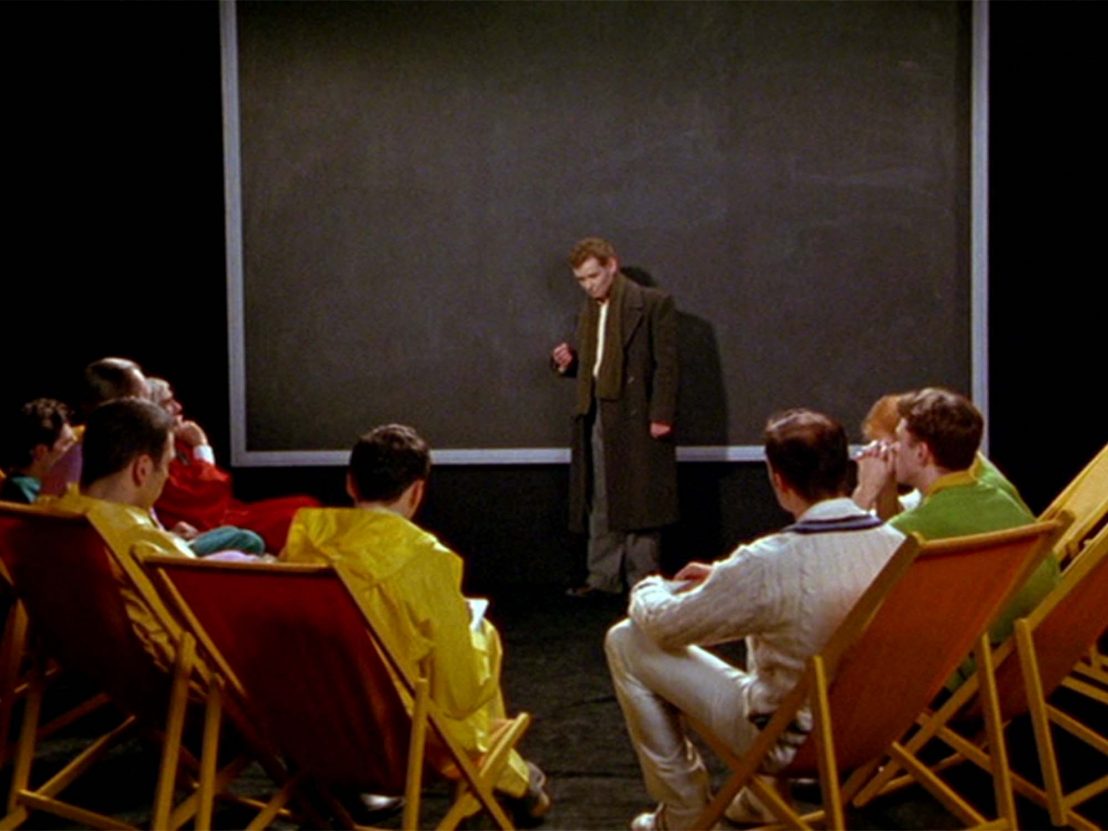
Do not be put off by the title. This is by no means a paper looking at Wittgensteinian philosophy in relation to cinema – I am not advanced enough to attempt such an essay, and there is already a book dedicated to that subject. My reasons for writing about cinema and the Austrian philosopher Ludwig Wittgenstein are entirely personal. There are some strange parallels between my formative experiences as a cinephile and Wittgenstein’s life which may resonate with others who take comfort in the quietude of the picturehouse. Allow me this moment of philosophical self-investigation.
___STEADY_PAYWALL___
Wittgenstein was born in Vienna in 1889. Over a century later, in 1998, I came into the world. Wittgenstein first arrived at Trinity College, Cambridge in 1911. I began my undergraduate studies there as a history student in 2016. It’s a tenuous connection, not least because our backgrounds could not be more different; however, among the college’s alumni, Wittgenstein was one with whom I felt an affinity. I expect it partly came from reading him as a teenager, but mostly from seeing Derek Jarman’s 1993 film Wittgenstein inspired by his life. I was given a copy by my grandmother and we discussed it while walking through Jarman’s garden at Dungeness, one of the memories I hold closest to my heart. My grandmother’s interest in Jarman, and her sharing of his films with me as a teenager, continues to puzzle and fascinate me, though I am immensely grateful that she did.
The film, originally written by literary theorist Terry Eagleton and changed significantly by Jarman, creates an avant-garde double of Trinity College cast against black backdrops with brightly coloured costumes and props. Karl Johnson plays the adult Wittgenstein, with Michael Gough as fellow philosopher Bertrand Russell and Tilda Swinton as his lover, Lady Ottoline Morrell. Jarman brought out Wittgenstein’s queerness, known to have been in love with at least three men during his life.
Wittgenstein the film captures the austere surroundings of Wittgenstein the man. After submitting his Tractatus Logico-Philosophicus to obtain a PhD, Wittgenstein became a fellow of Trinity until his death in 1951. During the 1930s he lived in rooms in the tower of Whewell’s Court within the college, which philosopher G.E. Moore described as sparsely furnished with “a large view of the sky and also of Cambridge roofs”. I spent two years in Whewell’s, although my approach to decoration was rather less minimalist. I ignored the college’s policy against pinning images on the walls, covering mine with posters I had rescued from the rubbish pile of the Cambridge Arts Picturehouse.
My time at university was complicated by my mental health, a subject I have previously written about for Little White Lies, and being autistic which made it difficult to socialise. I immersed myself in my studies, as well as my burgeoning appetite for film. My career as a critic began during my first year, reviewing the documentary O.J.: Made in America (2016) for the student newspaper, Varsity, and I found myself hooked. I soon became editor of the film section, a post I somehow retained for two years despite it supposedly being a termly role. The greatest perquisite of the role was my press pass to the Arts Picturehouse, which became my private library.
Every Friday I gathered my weekly reading and headed out of Whewell’s Court to the Arts where I’d set up camp in the middle of Screen One. Often I didn’t check what was showing that day, but I would sit through each of the week’s releases in turn and review them for the paper in the intermissions. If the film was good, I would be rapt, but if it wasn’t my attention would turn back to books on the Industrial Revolution or Mediaeval queenship. So many hours were spent in that room that I knew how to switch the lights off when the projectionist forgot, and once had to run out to find them when the projector fell down. The cinema sat above a Wetherspoons called The Regal, and if it was a late screening you could feel the vibrations of the music rising up through the floor. When you spend so much time at a single venue, these quirks become a part of the charm.
Wittgenstein shared my escapist eccentricities. He too felt overwhelmed by university life, and fled his Trinity rooms for the Kinema which used to be situated on Mill Road, now the location of the Varsity offices. Wittgenstein always sat in the centre of the front row to be as totally immersed as possible. The classical scholar H.D.P. Lee reflected that Wittgenstein “detested highbrow films or English films” and liked the Kinema because they mostly showed “American Wild West films”. Jarman shows Wittgenstein watching a Western in his film, drawing parallels between the young boy wearing a Native American headdress at a table with the adult Wittgenstein finding that child-like joy again to present a more human version of a philosopher whose writing is often deemed impenetrable. In these moments Jarman gives us a way in to connect with the man himself.
Until I was at university, I hadn’t realised that films had much value beyond entertainment. As I saw more international cinema and explored Trinity’s film library, I became fascinated by the theoretical possibilities cinema holds. This informed my writing for the student paper, experimenting with styles and approaches to the seventh art which eventually led me to staying at Cambridge for a fourth year to complete a master’s in film and screen studies. Perhaps this realisation also came through revisiting Jarman’s Wittgenstein, and seeing the depiction of the philosopher at the cinema.
Midway through the film, the camera pans through a mocked-up version of the Kinema with Wittgenstein sitting in the front row. He’s not alone however – a student sits beside him after a class on ‘language games’ writing ideas in a blue notebook as the project whirrs behind them. A similar shot later shows a moment of emotional intensity in their spectatorship, and the camera closes on their hands as they touch. As much as there is a joy to being alone at the cinema, I have since found it to be an experience worth sharing with those I care about. In voiceover, Johnson says, “There was no competition between the cinema and seminar.” Unlike Wittgenstein, my time at Cambridge made me realise the two were not so different after all.
Published 3 Mar 2023

By Adam Scovell
Visiting the site near Southwark Bridge in London where the late artist’s filmmaking career began.

By Sam Moore
In 1976’s Sebastiane and 1986’s Caravaggio, the director refuses to relegate homosexuality to the subtext.

By Max Ramsay
The pioneering British filmmaker’s final work remains a profoundly personal and poetic work.